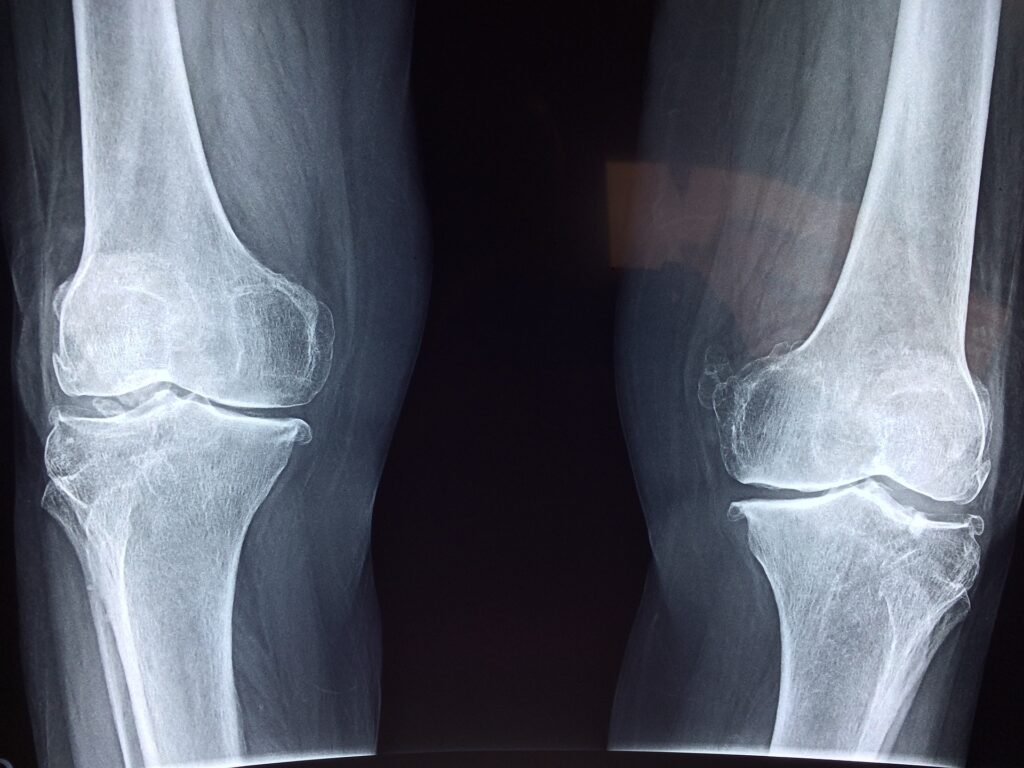
Knee replacement surgery is a medical procedure that involves replacing a damaged or worn-out knee joint with an artificial one.
It is typically performed on patients who have severe knee pain or mobility issues due to conditions such as osteoarthritis, rheumatoid arthritis, or injury.
Types of Knee Replacement Surgeries:
There are two main types of knee replacement surgeries: total knee replacement and partial knee replacement.
- Total Knee Replacement: Total knee replacement surgery involves replacing the entire knee joint with an artificial one. This surgery is typically recommended for patients who have severe arthritis or significant knee damage. During the procedure, the surgeon removes the damaged joint and replaces it with a prosthetic knee joint made of metal, plastic, or ceramic.
- Partial Knee Replacement: Partial knee replacement surgery, also known as unicompartmental knee replacement, involves replacing only the damaged portion of the knee joint. This procedure is typically recommended for patients who have arthritis or knee damage in only one area of the knee. During the surgery, the surgeon removes the damaged portion of the joint and replaces it with a prosthetic joint.
Risks and Benefits of Knee Replacement Surgery:
the most common risks and benefits associated with knee replacement surgery are
Risks
- Infection
- Blood clots
- Nerve damage
- Allergic reactions to anesthesia
- Implant failure
Benefits
- Reduced knee pain
- Improved mobility
- Increased quality of life
- Better sleep
- Ability to perform daily activities with less difficulty
Recovery Process:
After knee replacement surgery, patients typically spend a few days in the hospital before being discharged. During this time, they will work with physical therapists to begin their rehabilitation process. Patients will also be given pain medication to manage any discomfort they may experience.
In the weeks following the surgery, patients will continue their rehabilitation with the help of physical therapists. They will work on improving their range of motion, strength, and flexibility. Patients may also use assistive devices such as crutches or walkers to help with mobility.
Frequently Asked Questions:
Q: How long does knee replacement surgery take? A: Knee replacement surgery typically takes around two hours.
Q: How long does it take to recover from knee replacement surgery? A: Recovery time varies from patient to patient, but most people can expect to make a full recovery within three to six months.
Q: Will I be able to walk normally after knee replacement surgery? A: Yes, most patients are able to walk normally after knee replacement surgery.
Q: How long will my knee replacement last? A: The lifespan of a knee replacement depends on many factors, but most last between 10 and 20 years.